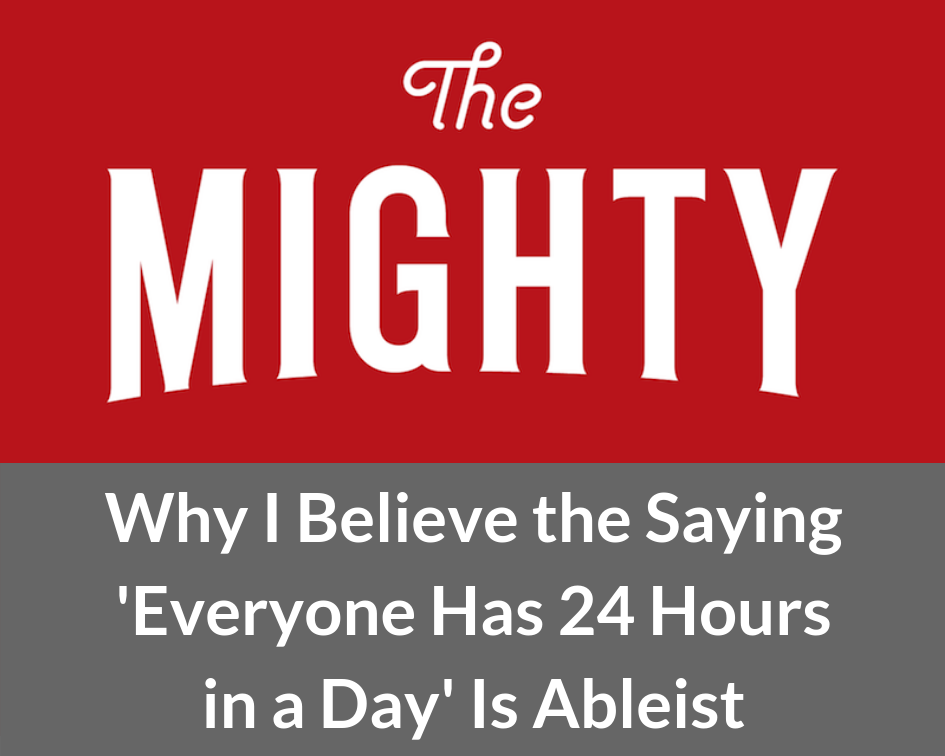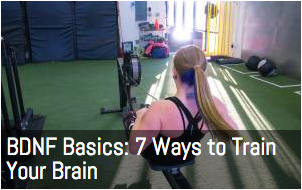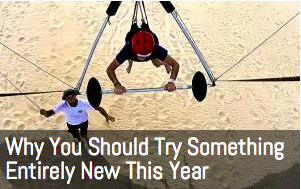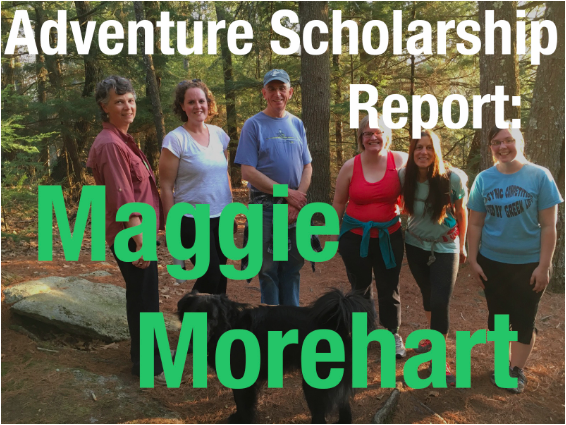So I was excited to begin this funny and entertaining book about running on my recent vacation in Michigan. But as I started reading, I was reminded that you can't always judge a book by its cover. Don't get me wrong - this book is both funny and entertaining. But I realized within the first few pages that it was about so much more. This isn't a book about taking on some of the most bizarre and iconic races in the world, written by an elite runner who's collected so many medals over the years that they've lost count. This is the story of a runner who has battled alcoholism and asthma, has challenged the labels society places on people with disabilities and has struggled with her own identity as a runner. Yes, it's funny. Yes, it's fast-paced and entertaining. But it's also eye-opening and inspiring. I couldn't help but feel as though I had made a new friend and experienced my own mini running revival when I finished this book. I'm thrilled to share the following excerpt from the introduction to Running Outside the Comfort Zone. You can order your own copy of the book here, and don't forget to tell me what you think in the comments! Introduction: What's the Password?Republished from Running Outside the Comfort Zone by Susan Lacke with permission of VeloPress. I HAVE THE GREATEST JOB IN THE WORLD. As a writer of endurance sports, I get paid to chase endorphins on a daily basis. For almost a decade, I've written about the awe-inspiring feats of endurance athletes, from superhuman professionals covering an immense amount of terrain in a short time to everyday athletes who, against all odds, do the incredible. I've written hundreds of articles on endurance sports, interviewed some of the brightest minds in the biz, and participated in dozens of iconic triathlons and marathons around the world.
You'd think by now I'd have learned a thing or two about being an endurance athlete. Yet, if you're reading this book to learn the secret password for joining the runners' club, let me make one thing clear: You're reading the wrong book. A few years ago, I was given the opportunity to write a different book--one that describes my journey from overweight, alcoholic chain-smoker to runner, triathlete, and fitness journalist. I didn't think anyone would care, honestly--after all, my story is the story of a lot of other endurance athletes out there. We're not born running up mountains. Most of us don't even figure out we're capable of such a feat until later in life. Along the way, we make a lot of mistakes. Some of us even hit rock bottom. And then we pick ourselves up, dust off the dirt, and start climbing--sometimes literally. Running is a transformative experience in mind, body, and spirit for so many. It helps us face inner demons and shush the naysayers--especially when those naysayers are ourselves. So, I wrote about my climb, and something surprising happened when the book came out. People cared. In fact, they really liked the book! But when they approached me to tell me they liked it, I'd see their faces transform from excitement to bewilderment: "Oh, wow," they'd say. "I didn't know you were . . ." And then they'd catch themselves before they said something truly offensive. Let me back up a little bit. Despite being an endurance athlete, just plugging along, trying to climb the mountain as best as I can, I'm not your typical endurance athlete. I don't fit the mold for what most people expect from someone who writes about running for a living. Don't get me wrong--I love every square inch of my body. But I also love baked goods, and it shows. No matter how much I run, six-pack abs elude me, and my thighs are so curvaceous, so very sexy, they can't stop touching each other. I'm also not very fast. I've written articles about how to get faster, and yet my personal records, or PRs, are unimpressive. At best, I'm a middle-of-the-pack runner. Most days, I'm somewhere in the back. My written work is a classic case of "Do as I say, not as I do." After my first book came out, I'd get invited to group runs, only to sheepishly admit that . . . well, I wouldn't be able to maintain the average pace of that group. It was kind of embarrassing. I'm asthmatic, so every time I run, no matter how much fitness I have or what speed I'm going, I cough and wheeze like it's the first time I've gotten off the couch. But the thing that really trips people up is my hearing aid. For years, I've written a lot about running and very little about the fact that I'm deaf. I have been since I was two and a half years old, when a virus killed off the nerve endings in my ears, rendering me completely deaf in one ear and what doctors call "severe-to-profoundly deaf" in the other. I wear one hearing aid in my so-called good ear, but it doesn't do much in the way of amplification--with it, I catch about 50 percent of what a hearing person can. It wasn't a conscious decision to hide my disability in my writing. Honestly, it's all but impossible to hide. When you meet me, right from the second I say, "Hello," it's the most obvious thing about me. I rely on lip-reading and will jockey for an ideal position to see your face. I speak the way I hear, which is to say, not very well. Every new conversation partner cocks his or her head like a springer spaniel, trying to place the foreign country behind my heavy accent. When people can't remember my name, they refer to me as "the deaf one." It's never "the writer," "the runner," or even "the one with the brown hair." I would kill to be "the one with the brown hair." But no, it's "the deaf one." That is the quickest point of reference. It's better than other names I've been called. When I was eight years old, my older brother, Chris, told me the kids in the neighborhood were building a fort. We excitedly rushed down to the end of the block, where we saw an elaborate structure constructed from tree branches and colorful bed sheets. A sign at the entrance declared, in crayon, NO GROWN-UPS ALLOWED. Chris and I stood there slack-jawed at just how cool it all was. "Let's go in!" he said, running toward the entrance. I quickly followed. We were stopped by Elise, the oldest kid on the block. "What's the password?" she said in a stern voice, her arms crossed across her chest. Chris and I looked at each other. "Password?" I asked. Elise nodded. "We need to make sure no grown-ups get in." To a group of kids, this logic made perfect sense. "Open sesame?" Chris shrugged. Elise shook her head. "Abracadabra?" Still no. "Shazam?" Elise rolled her eyes. "Fine, I'll tell you," she said, exasperated. She leaned in and whispered the password into his ear. Chris repeated it and was granted entry. The look on his face as he pulled back the curtain let me know something amazing was in store. I couldn't wait to get in. "Come here," Elise said to me, leaning in. I pulled back, craning my neck to look at her mouth. "I said," she sighed, "come here." "You can't whisper to her," Chris said. "She needs to see your mouth." "But what if the grown-ups hear?" was her reply. We looked around--there wasn't a grown-up in sight. Still, if there was one thing we knew, it was that adults--moms, in particular--had supersonic hearing. We really couldn't be too careful. "I got it," Chris said. Silently, he mouthed to me: "The password is . . ." "The password is . . ." I parroted. "Super . . ." "Super!" I exclaimed. Elise shushed me--I was too loud. What if the grown-ups heard? "What's the rest of it?" she demanded. I looked at my brother. "Cali . . ." "Colli?" It made no sense. "Fragi . . ." "What?" I squinted. "Fragi," he repeated, with urgency. He knew what was happening. I hadn't yet seen the movie Mary Poppins, and "supercalifragilisticexpialidocious" was not in my vocabulary. Super was a word I recognized and could lip-read. The rest of it was gibberish, and I was racking my brain, trying to connect what my brother was saying to a word or phrase I recognized. It was futile. As Chris repeated the word over and over, the kids from inside the fort stepped outside to see what was happening. With every failed attempt, I felt my face getting redder. And then it happened. I knew the words all too well. "Your sister's retarded," Elise said. The other kids thought it was funny. "Retard!" they laughed, slapping limp hands against their chests, mocking me. Hot tears stung my eyes. My brother sprinted out of the tent and grabbed my hand. "Let's go." "But the fort!" I cried. "The fort's stupid," my brother huffed, yanking my arm. "Let's go." My mom tried to console me that night, telling me it would get better. It never really did. Thirty years later, I've come to accept that I don't quite fit in the deaf world. I don't know sign language; I went to mainstream schools, where I was usually the only kid with a disability; and I have never been a part of Deaf culture. As for the hearing world? Well, it isn't quite sure what to do with me, either. To compensate, I've tried to be as "normal" as possible. In elementary school, I discovered that if I didn't make my deafness a "thing," most other people wouldn't either. I learned to sit in the front row of classes so I wouldn't have to ask my teachers to repeat themselves. When my friends wanted to watch TV or go to the movies, I learned to suggest another, better activity, so I didn't have to admit that without closed-captioning, which was a rarity at the time, I wouldn't be able to understand what was going on. I learned to mirror the facial expressions of people so that even if I didn't understand what they were saying, they at least thought I did. I laughed at the right times and uh-huhed when appropriate. I did things deaf people don't typically do, like play the saxophone in the high school marching band and go out for the cheerleading squad. I earned my doctorate and became a college professor, assuaging my students' fears on the first day of class by saying that if they could get past this voice coming out of me, they would learn a whole lot of important stuff. But I was never really normal. I never learned the secret password. And then something amazing and entirely unexpected happened: I discovered running. The first time I ran a 5K was the first time I really felt normal. No one knew--or cared--that I was deaf. My ears had nothing to do with what my legs were trying to accomplish. Shortly after, I started writing about running--first for blogs, then for national magazines, and then a book. At last, I had a voice--a normal voice--that didn't make people flinch! It was great. Whereas before, people knew me as "the deaf one," now I had a whole bunch of folks who knew me only as Susan Lacke--the writer, the runner, sometimes even the funny one. My hearing aid faded into the background, becoming just as much a part of me as a kneecap or fingernail--something I don't think about very much, much less talk about. But when I had to actually talk to people in the running world, that liberating feeling came to a screeching halt. At a race, for example, I'd meet readers in person and see the change in their expression within the first 15 seconds of our conversation. As they looked me up and down, I felt them taking me in: That body. That finishing time. That voice. That hearing aid. "Oh, wow," they'd say. "I didn't know you were . . ." What came next really stung: "You're a runner?" There it was. I was still different. I didn't really belong in the running club. It was "supercalifragilistic" all over again. I've discovered that I wasn't the only one who felt this way. Many runners deal with a kind of impostor syndrome, feeling as though they don't belong in the sport. You can spot them fairly easily--they are always quick to let you know they're a runner but that they're not a "real runner." I was certainly guilty of this. I would rarely speak to others about my race plans, and when I did, I'd often minimize them. "It's only a 5K," I'd be quick to point out, shaking my head. Or, "It's not like I'm going to win or anything." If someone congratulated me on a marathon or triathlon finish, I'd laugh: "Oh, come on. I was bringing up the caboose of that train. They gave me a medal because they felt sorry for me." When I was introduced as someone who wrote for a running magazine, I'd try to beat them to the punch line. "I know, I know, I'm a fluke," I'd say. "I'm still waiting for my boss to figure out I don't know what I'm doing." But secretly, in my heart of hearts, I wanted to be a "real runner." I wanted to fit the mold of what people expected of me as someone who writes about running. I wanted to have the lean physique and fast finishing times of the people on the covers of the magazine I write for. I wanted to not feel like a fraud. So I decided to train. I mean, really train. I mustered up the courage to ask my magazine editor for coaching. Mario Fraioli, or "Coach Dude" as I came to call him, had coached Olympian runners and marathon champions. He wrote all the training plans for the magazine. If anyone knew the secret password, it was him; if anyone could make someone a "real" runner, it would be him. He asked what my goal was. I said it was to qualify for the Boston Marathon. That definitely seemed like a goal a real runner would have. "Hmm, okay," he said. "What's your current marathon PR?" I told him. It was exactly an hour off what I would need to even get my foot in the door for Boston. "Get me there?" I pleaded. It was a big ask, I knew that. But he agreed to try. "Let's do this," he said. It would be awesome if what followed were a montage of kick-ass hill repeats, blazing track workouts, and my great attitude. I would love it if the highlight reel contained me getting slimmer and faster as Coach Dude blows a whistle in my face and cracks the proverbial whip. At the climax, I would triumphantly cross the finish line at the exact time I needed to qualify for the Boston Marathon. Coach Dude would hug me and, with a tear running down his cheek, say he was so proud. I'd know the password, and finally--finally!--I'd be a real runner. I'd even change my byline in the magazine: "Susan Lacke, Real Runner." What actually happened? Not that. I followed Coach Dude's training plan diligently, but many days, it felt all but impossible. Yet when he asked how things were going, I'd say, "Great!" and ask for more. I knew I couldn't handle it, but I also knew a real runner could. So until I became one, I was going to fake it. Coach Dude, who lived 500 miles away and was coaching me remotely, had to take my word for it. Things started to hurt; I kept running. My asthmatic lungs got angry; I doubled up on my medicine and kept running. I was hungry all the time, but I knew real runners were lean. So I ate a rice cake and tried to convince myself that no, I actually really like rice cakes! When I rolled my ankle on a hike with my husband, Neil, I limped home on a big purple foot. I told Coach Dude I needed the day off. The next day, I wrapped up my swollen limb, shoved it into a running shoe, and pushed on. Though my ankle eventually returned to its normal size, a stinging sensation in the joint remained. From time to time, my ankle would even give out from under me mid-stride, sending me tumbling. And still, I ran. I didn't tell anyone, even Coach, what was really going on. My ability to run through injury became like a silent point of pride. Real runners are tough, right? A few weeks later, I ran a half-marathon and set a PR. This was working! Then one morning, my alarm clock buzzed to kick me out of bed for a scheduled early-morning run. I hit the button, groaned, and set my foot on the floor. What the . . . ? My ankle refused to move. When I tried to flex my foot at the joint, it was locked. I couldn't get a pair of shoes on, much less run. I slid on a pair of flip-flops and went to my doctor. Soon after--in fact, the very day I was scheduled to pick up my race packet for my Boston-qualifying marathon, the entryway to my becoming a "real" runner--I was in an MRI tube, trying to find out what was going on with my ankle. "Well, what is it?" I asked, peering anxiously over my doctor's shoulder as he scrolled through my results on a computer screen. I didn't like the look of his knitted brow. "What I'm trying to figure out here," he finally said, turning to look me in the eye, "is whether your pain tolerance is just that high or you're just that stubborn." As it turned out, rolling my ankle had fractured it in two places and torn a ligament. Ankle reconstruction surgery was scheduled, and racing plans were shelved. They rebroke my ankle to set it correctly and then cut deep into the joint to repair my ligament. All of it hurt less than the blow to my ego. Even as my ankle slowly healed and I returned to running and triathlons, one thing after another kept me from trying for Boston again. My best friend, Carlos, who had inspired me to take up running in the first place, passed away from cancer. Losing him also meant losing my fount of inspiration and motivation. At that same time, I moved to a new city, where I struggled to adjust and assimilate. I was lonely, so I took on more writing work to feel some kind of connection with humanity, even if it was just Facebook comments and tweets on an article or column I wrote. Through it all, there remained this unfinished business of becoming a real runner. It gnawed at me on a daily basis. I started covering miles just for the sake of covering miles. With no real plan and waning motivation, I found myself going through the motions, doing the things runners are supposed to do. I signed up for local races. I bought fancy new gear. I choked down gels at 45-minute intervals. I was running the miles, but it had all become so mechanical and uninspired. Neil, an endurance athlete himself, began to look at me with concern as I returned home disenchanted from another lackluster run. I signed up for yet another race--the Huntsville Marathon in Utah--hoping that this time, things would somehow click, my hard work would pay off, and I would finish the race and feel transformed. Yet when I crossed the finish line, I felt exactly the same. Nothing had changed. "You did it!" Neil said cheerily, wrapping his arms around me outside the finishing chute. "You set a new PR!" This was true--I had run that marathon 9 minutes faster than my previous personal best. But rather than feeling elation, I thought, Yeah, but I'm still too slow for Boston. I looked at Neil and shrugged: "Let's go." I didn't even want to stay for the post-race buffet. All I wanted was to get as far away from the finish line as fast as possible. I just didn't give a shit about any of it anymore. "What happened?" Neil asked as we drove home from the race. "You usually love race day!" I just stared out the window in silence. I had always loved race day because I felt like I belonged, but somehow, somewhere along the way, I had stopped feeling that way. Now, every time I toed the line, I would look at the runners surrounding me like they were part of some other tribe. They looked so fit. They looked so ready. They looked so excited. They knew the secret password. I didn't. "Maybe marathons just aren't your thing," Neil said with a shrug. I frowned and shook my head. "Marathons have to be my thing." "Do they really?" he asked. "I figured you'd know better by now." "What is that supposed to mean?" I said, glaring at him. "There's more than one way to be a runner, isn't there?" Neil replied. "You write all kinds of stories about all kinds of runners. So I guess the question is, what kind of runner are you?" I didn't know what to say. I sulked the rest of the drive home because I didn't have an answer. I sulked because I wanted so badly to have one. But I mostly sulked because I really, really didn't want to admit Neil was right. Had I been so hung up on some arbitrary goal that I had lost sight of what running actually meant to me? Was there more to running than just getting faster or finishing a certain race? Was there even such a thing as being a "real" runner, and if so, would I ever feel like one? What was the secret password? I didn't know--but I was sure as hell going to find out.
1 Comment
Jan Morehart
7/18/2019 10:02:16 am
Excelent, I will read this book.
Reply
Leave a Reply. |
My name is Maggie Morehart, and I'm the creator of Incurable. Learn more.
Categories
All
More Places to Find Me |

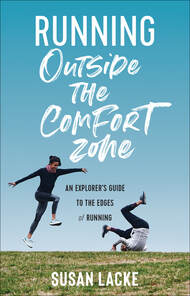

 RSS Feed
RSS Feed
